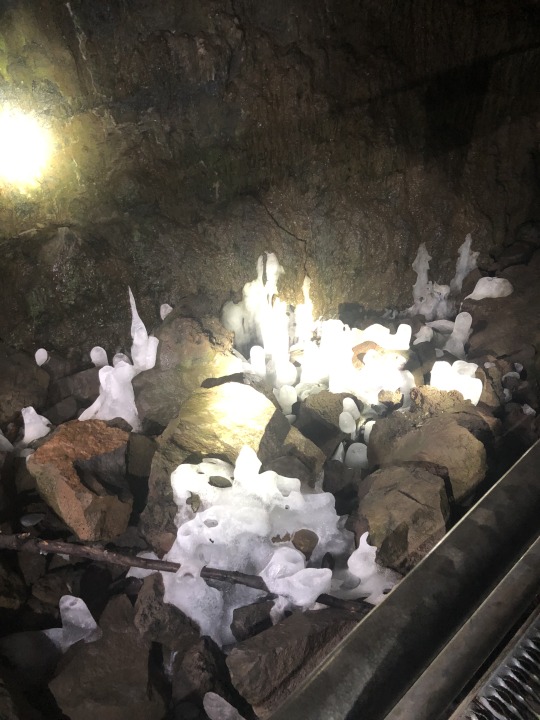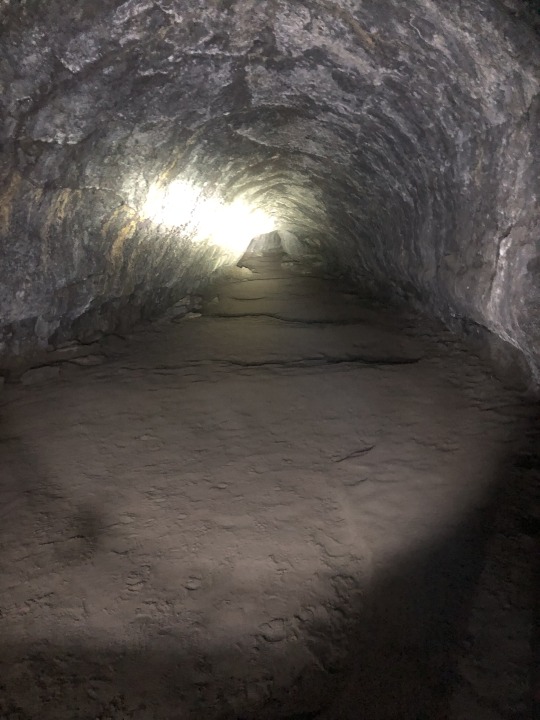#dsmp wilbur analysis
Text
tommy's making a fair point about the mechanics of minecraft in relation to the lore actually. it's true that in the dsmp's current stage everyone kinda has the same power level. they all have netherite armor and the best enchanted weapons and all that because the traditional way of playing minecraft includes getting geared up to protect yourself from threats. but this has the unintended consequence of making the combat much less interesting during big story moments
when eret betrayed l'manburg in the war it was more impactful because l'manburg was set up as the underdogs by virtue of having less resources and protection than the dream team. there was a clear power difference visible in the way that fundy, tubbo, tommy, and wilbur had cobbled together pieces of armor and the dream team was decked out in full enchanted netherite. in the earlier days of the smp the lack of armor contributed to the weight of the conflict
the l'manburg era was pretty good at controlling this sort of thing because the no armour rule worked both within the context of the lore and on a meta level
it feels like every method of fighting has been explored a especially with the usage of things like end crystals, withers, tnt, and wolves. and these days even those aren't enough to really damage someone unless you have a way of stripping them of their armor
ranboo's death was a great demonstration of this problem, where in order to actually kill him they had to write a reason for him to take off his armor. i'm not saying that stream was disappointing but ranboo's death specifically felt a little anticlimactic to me and it's not really anyone's fault either. that's just how it works sometimes when youre using a game for something other than its initial purpose
on the other end of this i literally can't count the amount of times schlatt had to ask tommy to kill a skeleton or a creeper for him because he failed to account for his complete lack of armor outside of a character perspective
idk. it's interesting how the mechanics of a game like minecraft have to be put into consideration for when you're crafting a narrative in that form. many things to think about in smp roleplay
#dream smp#dsmp#mcyt#meta#tommyinnit#ranboo#jschlatt#fundy#tubbo#wilbur soot#dreamwastaken#georgenotfound#sapnap#eret#the pig squeals#analysis#long post
3K notes
·
View notes
Text
About c!Wilbur in utah.
Obviously, c!wilbur is not cc!wilbur, and the fact that earth exists in the dsp canon is...weird??.
Worse yet, wilbur implies this is his home. The man who complained during the l'manberg's fight for independence turning out to be american himself. It's strange right?
But when you think about it. A minecraft server where Utah exists... that he could call his home..

Just saying, if his father had a server he claimed as his with a friend. An empire he was the heir of.. an empire where Utah exists...
Just imagine instead of Wilbur, previous president and revived terrorist working in a gas station, it would be Emperer Wilbur of Antarctic empire, previous president and revived terrorist working at a gas station.
This is a level of hilarity I can only respect
2K notes
·
View notes
Text
Okay i NEEEED to rant about Pogtopia because I know it was a ravine and shit but I need people to consider: lava caves








(all photos taken by me cause I explored one the other day and that’s where I got this idea)
Lava caves or lava tubes are HUGE super long caves that were carved out by literal lava flows and now just sit there and they’re cool as fuck
they’re cold as shit and the roof can vary from being dozens of feet above your head to being so low you have to crouch
there’s piles of rocks and ice formations and sand gardens and they are PITCH BLACK if you don’t have any lights and they paths can be crazy wide or super narrow and the ground is full of drop offs
ones that are made for people to explore have railings and stairs in certain places too and some even have built in lights or like the one I explored let you rent a flashlight
also a fun sidenote the ground is super hard packed sand full of holes from water dripping and it’s so hard packed that you don’t leave footprints (this would not help with Wilbur’s derealization)
anyways I think this would all work SUPER well for pogtopia cause cold/dark/shifting atmosphere/adding railings and pathways is already a thing in pogtopia
some more images that I yanked from google:




anyways PLEASEEEE consider spreading my vision Pogtopia lava cave/tubes for the win I’ve never been more right about anything in my life
#mcyt#dsmp#dream smp#10piecetalks#dsmp analysis#dsmp lore analysis#lava caves#pogtopia#dsmp study#pogtopia headcanon#dsmp headcanon#wilbur soot#c!wilbur#tubbo#c!tubbo#tommyinnit#c!tommy#c!techno#c!quackity#sorry for all the tags but I need people to see this I’m going insane#it’s cold as balls in these things and they’re super trippy I’m so right and you know it#give me at least 1k notes NOW !!! /j /lh
571 notes
·
View notes
Text
i will never get over the way c!wilbur's character explored themes revolving around perceiving yourself through a narrative and projecting conventions of storytelling and media onto your own life out of a need to become part of something greater and more “beautiful” than yourself. the complicated relationship between life and art: which imitates which? the attempt to aestheticize your own suffering in the hope of creating a “masterpiece” that makes it all somehow worth it. convincing yourself that you are a character on a stage and must play your part so you don’t have to admit to yourself that you’re tired and hurting and it’s easier than putting in the work to heal. just. god. c!wilbur’s story means so much to me
#was working on notes for my english class and it touched on some of this stuff#and now i am overcome with the lore brainrot#i have yet to see another piece of media that explores it as well as wilbur though#wilbur soot#c!wilbur#dsmp analysis#dream smp#og post
2K notes
·
View notes
Text
Does anyone remember that time cWilbur tried to weaponize the pit against cQuackity in the custody battle stream and he said something along the lines of "Don't trust someone who would have fought you in the pit" to cTommy?
Because I do.
That was fucked up.
Like, straight-up, not only incredibly manipulative, but also fucked up on a fundamental level. Wilbur is the one who dug up the pit all the way back in Pogtopia. He's the one who came up with the idea of Tommy and Techno fighting in there. He's the one who pushed Tommy and Techno in. He's the one who kept goading them on.
The only person who thought it was appropriate to get Tommy beaten to a pulp because he dared being angry at the guy who executed his best friend on the orders of a dictator is Wilbur. No one else thought of it. No one else orchestrated it. Even Mr. Techno "The only universal language is Violence" Blade was hesitant. Not Wilbur though! Motherfucker cheered throughout!
And then, after the brutality and cruelty of that situation, he had the GALL to try and use his own actions to discredit someone else. Because the way he phrased it cannot be spun around into a self-deprecating "you can't trust me" moment, there was none of that. He was straight-up just being a dickhead.
And then people wonder why Tommy didn't trust him after he came back to life and treated him like a ticking time bomb. Maybe Wilbur shouldn't have gaslit, girlbossed, and gatekept so close to the sun constantly!
#dream smp#dream smp analysis#tommyinnit#wilbur soot#c!wilbur critical#c!tommy#c!wilbur#crimeboys#c!crimeboys#a dsmp analysis?#from me?#in this day and age?#it's more likely than you'd think!
201 notes
·
View notes
Text
i think in both regards to story, and in terms of meta/real life
doomsday and the destruction of l’manberg killed the server.
whether people were for or against or apart of l’manberg or not, it was a gathering point that brought people together to talk. it was a place people would hang out. it was a place with lots of chests to steal food and supplies from. in new l’manberg so so many people spent their time their even if they were completely unaffiliated or lived somewhere else.
storywise when it was destroyed, the story just lost a central characteristic for conflict, and a very important thing. l’manberg wasn’t just a place. it was ideals it was imagery, it was a goal, it was safety it was so many things, and with it gone with no hopes of returning, no matter how many new places people built they were all empty and never the same.
and with it gone everyone literally had to go their own ways. everyone who gathered there went far far away to make their own homes.
on a meta standpoint, people like talk about how much they miss old dream smp streams and that’s because of the non serious lore streams. where walking down a path and bumping into someone could lead to goofing off or serious talks.
where tommy could build a pathway from manberg to pogtopia for prime and for the upcoming rebellion, and get caught by a vice president who decided it was his day off and he was going to roleplay as a mcdonald’s worker.
it’s how you have tommy and tubbo goofing off on the server not doing lore, only for schlatt to see and they go lore mode and have to make up a pregnancy excuse.
it’s how you got silly serious moments. it’s also just straight up how you had people interact. if everyone lived hundreds of blocks away, it’s harder to just randomly run into each other while building or running to do something, meaning you’re less likely to talk, and less likely for anything to happen.
when l’manberg acted as a central hang out spot, people built their homes in close proximity, they would stick around the area and things naturally happened.
destroying l’manberg was, in my opinion, the worst thing they could have done. doomsday did very very little narratively to the story. the community house gathering did more to the story than doomsday did. and it was awful because tommy rallied people behind him to fight in doomsday not for him, but because if they could do this to l’manberg what would stop them from doing it to every other group.
and everyone fought, and despite an entire server fighting it was pointless.
the only thing doomsday did was force people to hide. and you can make claims for ranboo who went to live with phil and techno- but ranboo’s character arcs could’ve had a very similar outcome by staying with almost anyone else.
no l’manberg ultimately just drove everyone away, and there was never any serious or successful move to make anything on that server take its place, to fill the hole, so there was nothing to actively pull things together. no driving force or motivation, nothing to supply passive roleplay, nothing to bring people together.
everyone lost on doomsday. that loss of l’manberg meant no one could ever win again. just think about it. after doomsday, it was loss after loss.
the final disc confrontation? tommy and tubbo lost. they were rescued, but they lost their fight, and it was a trap anyway.
dream in prison? well he has punz on the outside, doesn’t matter, and he can control ranboo, and he still got to kill tommy AND ghostbur. it was a loss. and he escaped.
every single fight after. quackity lost, wilbur lost, tommy and tubbo lost again, and again. the server for everyone ended in a loss.
there was not ever a win again. usually in stories, after losses, you want something good to happen to make those hardships worth it. just like when good things happen you want bad things to happen to make it worth it, you need a balance.
think of the revolution. the up and down rollercoaster. the freedom into war into loss and death into hope into loss into compromise into win.
the election was a nail biting race where depending on who you voted for, was lose and a win. for tommy and wilbur it was a loss, but they quickly gathered things up, they had hope, and they had energy, and a plan, and techno joined and they were confident. there were ups and downs up until doomsday, afterword no character seemed to get an up. any positive was immediately trivialized. for example tommy’s decided to try and heal and make a hotel which was immediately turned into a problem where people tried to fight him over it and then he died. or he got a pet that made him happen and everyone tried to set it free or kill it. he finally starts to feel safe no relax and dream breaks loose, and he is endlessly stalked the entire time, and he dies alone with his abuser and his abuser’s accomplice.
there is never an up after doomsday, and killing l’manberg that day killed the dream smp.
576 notes
·
View notes
Text
I feel like the appeal of C! Quackbur (to me at least) is just how versatile it is as a ship and the range it has.
You want a subtle rivals to lovers, mutual pinning and longing but one of them is repressing his own feelings because he hates himself too much to let someone get attached to him ship dynamic with a political backdrop? You want longing gazes, knowing looks and the unspoken truth that, maybe, just maybe this relationship and understanding between them goes deeper than either of them let on or want to admit? BOOM. Lmanburg election arc Quackbur!
You want all of that but with more tension, high stakes, mental illness, a very "forbidden romance" vibe with an enemies that have been in love with eachother for a long time but can now finally be on the same side and possibly act on their feelings dynamic (but theyre doomed by the narrative so it was never going to work out. Or maybe it will, who knows. Maybe this time they find solace in eachother. Maybe this time Quackity stops him before its too late. Maybe this time it doesnt end in flames. Who knows. Its up to you really, if you keep telling the story over and over again, maybe this time they get their happy ending here and it doesnt have to be a tragedy. Your choice really). Pogtopia era C! Quackbur!
You want fucked up grief and angst and reminiscing on the past and being haunted by what could have been? You want seeing the spectre of your dead friend (if he was truly your old enemy, why does he feel like a past lover to you) and wondering if maybe he remembers everything you both went through the same way you do and if maybe his heart aches when he sees you the same way yours aches when you see him but you know he isn't the same and you'll never see the old verison of him ever again... but hes here... as a ghost.. and that has to be worth something right. (Is it a miracle you can still see him or are you forever being tormented by what you can never have?). BOOM, Butcher arc C! Quackity and Ghostbur (or Aftermath C! Quackbur as I call them)
You want all of that, but hey. What if we brought back the guy. What if it didn't have to end in death? What if they could reunite and speak again after everything? Would they even get along? You want the culmination of years of pinning, grief, hurt, and mutual obsession? Do they truly love each other, or have they fallen in love with the idealised verisons of each other they have in their own heads? Maybe this time, they'll actually get their shit together and talk. There really isn't anything stopping them now, other than themselves and each other. Maybe C! Quackity finally finds someone who respects him, is dedicated to him, and can engage with him on the same intellectual level in C! Wilbur. Maybe C! Wilbur finally finds someone who makes him feel human and can challenge him and his more self-destructive behaviours while still loving him in C! Quackity. Maybe this time, they get to understand each other, and they get to heal. Maybe this time, it's not too late, and sure, they dont have the healthiest relationship, but they're working on it, and they're okay for once. Just this once. Maybe. Or maybe you don't want that. Maybe it is too late for them. Maybe they'll never have what they once had, and they're both left with bitter hatred and longing for the past that grows weaker by the day as the rose tinted filter starts to fade. Maybe they make each other worse. Maybe the closest they ever get to being close to each other is by hurting each other. Maybe the only times they hold hands are when they're catching each other's bloody fists. Maybe they're both too far gone now. Maybe they've hurt each other too much to ever be vulnerable with each other. Maybe it's just too late for them. Maybe it was never meant to be. You want a joker card ship dynamic that can either end in healing and a happy ending or in an even more fucked up tragedy? Or both! Why not. BOOM. Post revival C! Quackbur
#i love them both and their unique history so much. i wish more people talked about the 'aftermath“ era and the lmanburg era#c! quackbur#c! Wilbur soot#c! Quackity#tnt duo#tntduo#dream smp#dsmp#mcyt#dsmp meta#??? maybe??#analysis (???) kinda??#i say a thing#can you tell im not normal#this ship genuinely changed my life
132 notes
·
View notes
Text
Wilbur Soot has compared himself to the poem of Ozymandias countless times before. This is something us fans know.
He’s made reference to it on a handful of occasions, and has even had Fundy read the poem allowed. There was an entire animatic by Sad-ist about him as Ozymandias.
Ozymandias is this poem about this king, a supposed great ruler of a great kingdom, the king of kings. There’s a catch, and the heavy hitter of the poem. It doesn’t matter, no one remembers it. All that is left behind is a broken run down statue and a name with none of his greatness attached.
It’s easy to say that Wilbur compares himself and thinks of himself like Ozymandias, a man who may have been beloved by many, who may have had many greats, but left nothing behind that wasn’t wrecked or ruined. He has no legacy that will outlive him.
This is increasingly sad when you realize what c!Wilbur has done over the course of the last several apology streams. He is trying to make people’s last memories of him positive. Whether it’s because of their choice to never speak to him again, or his own. He keeps stating he wants to leave (whether it’s potentially him dying, or simply leaving off on his own), so he wants to leave the people he cared about and wronged the most with some positive memory of him, something that will remain of him, even if small.
He even says to Eret that he’s left behind and done one of the hardest & most important jobs of all, bringing people together.
Wilbur is still unable to see how he is the base, the one who brought everyone together in the first place, he’s the one who started it all, and the one that still manages to unite everything and everyone through one seemingly unbreakable thread that is him and his creation and belief in L’manburg.
I think then, c!Eret saying that he doesn’t want to be like Ozymandias, he wants to leave behind a legacy, something greater. He wants to leave behind some positive impact on future generations, namely through history and the telling of it and the preserving of it.
There’s some bit of bittersweet irony of Eret not knowing that Wilbur sees himself as Ozymandias, and how he speaks how he doesn’t want to do what Ozymandias had done, that he wants to be greater (doesn’t everyone?).
There’s something bittersweet about Eret often praising Wilbur for leaving behind something so great, L’manburg, and being such a large impact on everyone’s lives. Something that Wilbur can’t see himself.
1K notes
·
View notes
Text
i understand how it can kinda seem like eret's own mistakes were glossed over in this stream but i also do think that's just because. eret already dealt with that. he regretted his betrayal almost immediately, he went against dream and joined pogtopia's side in November 16th, he built a museum to honor the past centering The Caravan and left a note written "I'm sorry" in the replica of the final control room. he understood people's grievances, apologized, and continued to be nothing but kind to them (almost adopting fundy, letting tommy use the museum for therapy, helping tubbo get michael back). the point isn't if what he did was better or worse than what wilbur did, it's that he's been putting in the work for years now to make up for that, while the best wilbur could do was give a quick apology and leave (no matter the reason). so yeah, i think eret definitely has the right to lecture wilbur abt this
#dream smp#dsmp#dream smp meta#dsmp meta#dream smp analysis#dsmp analysis#yeah im putting the whoe shabang of tags leave me alone#c!eret#eret#wilbur soot#c!wilbur
3K notes
·
View notes
Text
Can we PLEASE talk about the parallel between
Wilbur's "Then let's be the bad guys" and
Tommy's "I don't want to be the bad guy"
#i am literally NOT ok#like??????#and then he STILL ask wilbur#well his grave??#for guidance??????#i want tk cry so bad????#he wants to be the opposite of what wilbur is but this whole stream just proved that he is still VERY much under wilbur's influence#dsmp#dream smp#tommyinnit#wilbur soot#c!wilbur#c!tommy#crimeboys#dsmp lore#dsmp lore analysis
890 notes
·
View notes
Text
I Ramble About The Ending For A Long Time
ok hello i am insane yes yes
however when else are you going to see me write c!crime meta
what’s important first off is that the emotional core of the story is still there. that’s the only reason why this works for me. this was a story about two bored brothers who make a story that turns into a nation together, and under that it’s about communication and loyalty and the strain mental illness places on a relationship and underneath even that it’s a story about two streamers in a pandemic who wanted content and to make each other laugh.
that is never undermined or taken less than 100% seriously; it’s the emotional core of the whole thing. as wild as it gets and as bold choices are made, both wilburs love both tommys and vice versa.
it’s a similar story with the line at the end: “I never did quite forgive myself” isn’t undermined, isn’t played for laughs. The argument c!crime have is incredibly well done and people will write actual analysis about that so you should go read it, but the gist of it is that c!crime are what they’ve always been: more than a bit unhealthy, perpetually arguing, but never quite willing to give up on each other.
with that being said, I felt like that was what I wanted out of the finale achieved. now to get into the wild parts.
the interesting part for me is how c!wilbur’s insane mindset is, for the first time, actually challenged and beat.
we’ve been saying for months that one of c!wilbur’s biggest issues is that his paranoia manifests in believing he is in a story, that there are roles like heroes and villains, that he has to play his part and there is nothing he can do about it. he’s his own self-fulfilling prophecy, he takes himself incredibly seriously, and most importantly, he is aware of the audience.
and nothing could break that. everyone around wilbur confirmed to his narrative, letting his vague statements that were clearly a narrative foreshadowing to suicide slip by. he’s getting swallowed up again by his own story, he is the one putting chekov’s gun on the wall, never quite saying something, but implying just enough that he was willing it into reality.
(he does the same thing in season 1, remember? he tells everyone he’s going to press the button enough times that by the end he feels like he has to because he’s foreshadowed it, because it’s who he is now. eret said it was never meant to be and thus it wasn’t. if you’re in an improv rp and you know it, speaking things is enough to make them real.)
and it almost works again! he almost follows the exact same trajectory of self-deprecation and sealing his fate. except. tommy’s not taking it this time.
tommy, having gone through everything he’s gone through, finally gets to win this. he looks the entire force of wilbur’s simultaneously self-aggrandizing and deprecating mindset dead in the eye and says tell me what you’re fucking talking about.
he says the words! he looks at wilbur and says we’ve both been in this story before, I know what you’re doing, I know who you are and what this is and I’m not going to let it happen again. tell me, are you going to kill yourself? he enters into wilbur’s spiral and says this can’t be redemption if you still won’t be honest with me and you can’t leave without apologizing.
he gets right to the core, no subtext, with all the blunt honesty he’s ever had, and c!wilbur, worn down from fighting and apologizing and the exhaustion of it all, finally gives in. he stops lying.
his backstory was never cool. he was a gas station attendee, never any sort of leader before coming to the smp, and his jacket was just another uniform. he isn’t even european. he somehow sailed here from a landlocked state, because why not. this is Not the type of backstory for the type of person he’s trying to build himself up to be, this isn’t the fit for the genre at all!
but insanely, impossibly, it’s true. it’s canon. just like the fish fucking and the fridge mom and everything else. it is ridiculous! and with that, it’s the realization that wilbur’s story has always been a serious character with serious feelings in ridiculous circumstance. his very real suicide was attempted via looney-tunes-esque sticks of dynamite in a pile, his ghost talks in a high-pitched voice and gives out blue dye. none of this undermines the seriousness of c!wilbur’s feelings, but it does undermine how he views himself as some great evil out of Game of Thrones.
he died and got revived by a book! his depression fort was named pogtopia! he has always existed just under the threshold of ridiculousness by just how seriously he takes it all, how seriously everyone takes it.
and c!tommy has always loved the person under the narrative he paints, and that’s why, at the end of it all, he can get through to him. tommy knows the story, he loves parts of it (l’manburg, the family, etc), but he doesn’t love this part, and for once, he gets to choose. he pushes and pushes and says you love me enough to not shy away from this, I am banking on you loving me enough not to push me away again, and he’s completely right! he breaks the cycle by being the same kid he’s always been.
and so wilbur’s end is ridiculous. it’s absurd, but it’s not him killing himself again. it’s not drenched in the belief that everything he made should be destroyed, but full of callbacks and nods to who he was. he never did quite forgive himself, but he’s not looking to the audience for forgiveness anymore, either.
there are no more looks into the camera, and the book he gives for tommy is for his eyes alone, unlike every other speech like apology we’ve seen so far. he says things that the audience won’t reach. he invites us, one last time, to look upon his works and despair, to tell us that nothing remains. but he is still there, even if there is no story to watch. he is not part of a story anymore. the cameras are cut, and he survived. he is nothing more than himself.
#wilbur soot#tommyinnit#dsmp meta#dsmp analysis#dear god I have so many thoughts about thi#I love taking things too seriously#suicide tw
695 notes
·
View notes
Text
In Defence of c!Niki - a Four Part Analysis of Every Arc
People who didn’t watch C!Niki see, in the fandom, a big sister type character with girlboss energy who wants to kill a child. Niki isn’t that. She has a well-written narrative which focusses a lot on her relationships with others. Here is me breaking it down!
PART ONE: c!Niki’s Early Days (you are here)
PART TWO: c!Niki’s Rebellion
PART THREE: c!Niki’s Disillusionment
PART FOUR: c!Niki’s Healing
Niki joined the server a little while after the L’Manberg War for Independence and she immediately joined the nation as Wilbur invited her to it. Of course, Niki was close with Wilbur from the beginning and quickly she got close to Tommy and Fundy too. But a relationship that I find interesting was her bond with Eret.
From the get go, Niki is told by L’Manberg (read: Tommy and Wilbur) that Eret was a traitor and wasn’t trustworthy, and while she understood their apprehension, she remained friendly with Eret as they were nice to her. She had no real reason to dislike him because she had not been there during the war and therefore wasn’t betrayed by her.
Wilbur ends up talking to her about this.
N: you know I’m loyal to you, Wil! You know I’m loyal to you.
W: I don’t- I want you to be loyal to L’Manberg.
N: and to L’Manberg! I am!
W: […] just stick with L’Manberg! That’s all I’m looking for- that’s all I look for in- in a woman- <laughs>
N: I promise, I promise I will
W: okay..okay, I’ll trust you..
N: I mean, y’know, that is why I joined! I joined to join the independent nation, didn’t I?
W: you did.. you did. You did. And just not their independent nation.
N: no. Our independent nation.
I think this is the first really important bit of Niki’s character - she is loyal. But she won’t take what people tell her and trust it blindly. She wants to form her own opinions on things and on people rather than listening to what others tell her about them. And yet, even when she ends up disagreeing with someone on something it doesn’t affect their relationship. Niki quickly begins to trust Eret a lot and Wilbur doesn’t trust him at all. Despite this Niki remains loyal to Wilbur and assured him she’s loyal to L’Manberg too.
That’s another thing - she promised Wilbur she was loyal to L’Manberg. And she kept this promise for as long as she could. Throughout this analysis I’m going to reference this promise a lot because while it’s a mostly forgotten piece of lore I think it has a lot of potential to be bigger and to be talked about a lot more often.
Additionally, I think this shows that Niki is pretty good at reading people - she obviously knows Wilbur very well and can read him because of this, even starting to say ‘and to L’Manberg’ before Wilbur had even finished saying he wanted her to be loyal to it. At the same time, she’s able to figure out from Eret’s behaviour that he’s trustworthy. Analysing motives and behaviour is how Niki figures out who to trust and it’s important to remember this for the Manberg era when suddenly the behaviour and motives of people around her didn’t match up.
Niki showed her loyalty by making the nation’s flag, by telling Wilbur her fox Fungi was the mascot of L’Manberg, by creating her bakery, and by giving everyone lots of gifts. I’ve said it before that she was the soul of L’Manberg. She loved that nation and she lived and breathed its ideals. C!Niki was an idealist. I truly think she would’ve been happy to remain in L’Manberg forever, if it hadn’t changed. Unfortunately, though, change is inevitable and attachment is a main theme on the Dream SMP, and there were many people attached to L’Manberg. It wasn’t ever going to remain the same.
The first pet war was the first time we really saw how strong of a moral code c!Niki had, and it’s something a lot of people think she only developed later on. While she was initially angry at Sapnap, Niki only wanted an apology (but she refused to beg for one). She never wanted revenge like Tommy and Fundy did.
Early Niki is often regarded as naive, but I genuinely don’t think that was ever the case. She was kind and compassionate but she was never a pushover and she’s always been headstrong.
Niki joined Coconut2020 in the elections as Fundy had told her they could bring peace to the Nation and make it better. It’s important to note that she was extremely upset when she learned he had committed voter fraud. Niki cheered despite coming in last place and this made it clear she’d be happy regardless of whether or not she won, as long as the people were happy.
#dream smp#niki nihachu#c!niki#c!niki analysis#dsmp#nihachu analysis#l’manberg#l’manberg era#c!wilbur#orphic talks#in defence of c!niki
194 notes
·
View notes
Text
I just realized how strange it is, how when Tommy was revived he had no choice in coming back, it just happened. Everything kind of faded out for him, he was no active participant in his own rebirth, but when wilbur was reborn he had such an active choice in getting on that train and I find it so telling but I don't know what it's telling.
To me, Wilbur is a headstrong person when he's not depressed. He was the leader of l'manburg, he lived his remaining years filled with decisions and choices that really impacted those around him (ie;, his choice of death, his choice to lie to friends, leading pogtopia, his choice to make a country in the first place etc etc. All of these things did affect him, but mainly others) and created a kind of awful non-pressure. It's weird to look back at his life on the dsmp and realize how focal that part of him is to character development of so many people. He makes a choice, others deal with the consequences.
To look at that and realize how perfectly parallel Tommys' storyline in response to it is is another thing entirely. He's equally if not more headstrong than Wilbur, constantly at a push and pull with others. Yet he's the one pulled- for Tommy, others make a decision and he deals with the consequences. It's the perfect backwards mirror to Wilbur.
And it's almost cruel how obvious it is that those are their internal conflicts. Tommy so clearly wants to be in charge of his own life and have his actions impact something for once. Wilbur wants a similar outcome, but in a way where he can almost relinquish control- he wants to be in charge of himself. He also wants others to be in charge of the hard stuff. He was the cause of so much, and now he wants not that, because all the blame always fell on him.
So when they're brought back from limbo it's like the cruelest irony ever, that immediately they're cemented in their same positions. Nothing changed because revival isn't a rebirth or something making you new, it's pulling a tired old person back from the dead and asking them to continue with the same old.
No change happens in limbo, no great revelations. It's meant to keep you stuck in your ways and sad. Wilburs' decision to get back on the train affected someone else, his ghost, his little brother, and he was still responsible and still to blame. Tommy once again had no say in whether he came back or not and was left feeling helpless and as though he couldn't even own his own death.
I also wonder whether their revivals play into the idea that your limbo is what you think you deserve. Does Wilbur think he always has to have a choice, or does he think he's required to take responsibility for everything that happens to him. Does Tommy think he doesnt deserve a choice? Or is he so beaten down that he cannot fathom getting one.
197 notes
·
View notes
Text
okay i now know too much about one specific aspect of homestuck and thankfully nothing about the rest of it. anyways, some dream smp classpects or whatever. i have never read homestuck, i just like character analysis.
dream - thief of blood. steals people's bonds and attachments for his own gain.
george - bard of void. invites destruction through absence. i just thought this one was funny
bad - bard of heart. allows destruction of his own heart.
punz - thief of light. steals fortune for his own gain.
fundy - heir of blood. is changed through his bonds with others, particularly familial.
wilbur - bard of mind. allows/invites destruction of his own mind and ideas.
schlatt - witch of rage. manipulates negative emotions.
karl - page of time. leads others through/using time.
connor - knight of time. uses time for his own benefit.
foolish - sylph of life. repairs life.
slime - seer of heart. observes and learns from the feelings and heart of others.
uh, yeah, there we go. feel free to yell at me why i'm wrong people who have actually read homestuck
126 notes
·
View notes
Text
so the desert/utah represents cwilbur's freedom from the narrative. he's been playing the role he thinks the story needs this entire time- general washington, the tragic anti-hero, the sweet woobified ghost, a menacing pixie nightmare girl, and then finally the disgraced protagonist seeking out redemption. he wants so badly to be a three act protagonist- alas, he is in a improv group roleplay. he's trying to play by the rules of the story where those rules do not exist by the nature of the medium. the apology streams help break him of this because nobody acts the way he would expect them to in a story. eret demands a real apology and change from him. niki is distant. fundy straight up tells him they will never reconcile. he only hurts tommy more and tommy tells him so. all of this compounds until the finale, where he stops seeing himself as a character and starts seeing himself as a person. this is why he leaves minecraft, the stage for his play, and appears in the real world, finally free from the narrative.
so why then c u in ut? why tell this to eret of all people? because he hopes that she too, will be free from the narrative. the narrative that he put on her: the tyrant king, the traitor, his own personal judas. but also, the narrative she helped make: she betrayed him, said the iconic line, moved the story from a lighthearted play conflict to a story, a narrative. "you are not the villain"- he hopes that one day, she too will leave the stage, and join him in the desert.
#dream smp#dsmp#analysis#dsmp spoilers#wilbur soot#eret#the eret#buttonduo#button duo#chatters#anyways that's My interpretation of it#people have probably said all this before lmao#i still refuse to believe hes from utah. im choosing to believe he was fucking with us. sorry bitch you're british forever
601 notes
·
View notes
Text
// dsmp rp
So. Quackity and Wilbur.
Their dynamic is fascinating to me because it's all about perception. It's always about perception, with Wilbur. That's his thing throughout L'Manberg: the greatest power is the power to control the narrative. Wilbur learns this early on. He wields this power well, in the ways in which he demonizes his enemies (Dream, Schlatt) and simultaneously glorifies the image, the idea of L'Manberg—and, by extension, the idea of himself. When Wilbur does something, everyone knows about it. You can't ignore him. It's by design.
Quackity, at this stage, barely seems to even qualify for the "enemies he demonizes" category. He's a small player, the little fish in the pond, another pawn on Wilbur's board, and not even a particularly useful one. He's also one of the first people to take a stand against Wilbur. When Quackity condemns Wilbur for his rigged election and runs against him, he is beginning a rivalry that will continue for as long as they live—but they are not yet enemies. Quackity isn't important enough for that.
It's at this point that I think their dynamic is really established as an imbalanced one. From the start, it's pretty much guaranteed that Wilbur is going to win. Everyone knows it. Everyone breathes it. Not only that, but from Quackity's perspective, it seems like no one particularly cares about Wilbur's blatant corruption, not in any way that matters. After all, he won their independence! He's the hero of the people! For Quackity, someone who decided to run in the first place to oppose corruption, it's a huge slap in the face.
From that point, it spirals. Quackity is humiliated during the debates; he's not as well-spoken as Wilbur, not as sure-sounding, and his points about "teaching people to be kind to each other" are brushed off as laughably naive. They talk about it afterwards, and Wilbur tells Quackity that there is no peace without power, and there is no peace without violence. Quackity doesn't believe him yet.
They are not equals. In most interactions they have, Wilbur is talking down to Quackity like he's his subordinate rather than his political rival, and Quackity definitely internalizes it. The humiliation deepens. His own running mate sleeps through the election. The humiliation deepens. His only hope is to make a deal with the devil, and he does so without second thought, for the chance at having something over Wilbur. It works. Then it backfires. Now Quackity is being associated with the cruel regime that Wilbur is condemning as hoardes of followers flock to his side at Pogtopia, and Quackity is still stuck with Schlatt, abandoned and talked over and kicked into the dirt over and over and over again. The humiliation deepens.
I think what Quackity feels towards Wilbur is something like resentment, something like jealousy, and all of it merges with his embarrassment and his self-loathing to become a horrible form of admiration. Wilbur can rig an election, blow up his own fucking country, and still be praised. As Quackity picks up the scraps Wilbur left behind and tries hopelessly to piece them back together, working without glory or recognition, people still speak Wilbur's name like he was a god among men, the only chance they had at freedom, "if only he never went mad."
But Wilbur is dead now, and Quackity is alive. Maybe, finally, it can be his turn. He thinks back on everything that went wrong and he remembers what Wilbur told him about power and violence, and this time he knows it's true because he saw Wilbur succeed. He puts it to the test. He forms a group to bring Techno to justice and he loses a life and he loses an eye. He forces the formation a new nation where his friends can be safe and it's ripped apart before his eyes and his friends abandon him anyway. And this, this, is too much humiliation for one man to handle. Wilbur wasn't wrong, far from it—the problem, as always, lies with Quackity. Clearly, he isn't going far enough.
The way I see it, the beginning of the Las Nevadas arc is the beginning of Quackity's lifelong obsession with burying the past. He doesn't regret anything that happened, because it was all essential to him becoming the newer, better person his is today. He's not naive and he's not weak, not like he was back then. He's not the side character from Wilbur's story. But thinking about that person makes him horribly uncomfortable and ashamed, so he tries not to, and he makes sure other people aren't thinking about it either.
The new identity he crafts for himself is not only modeled on Wilbur, but also on Dream, Schlatt, and everyone else who used their power against him. It's a weird little paradox he creates: all of these players are gone now, but Quackity is bringing them with him, even while he simultaneously refuses to dwell on their history. He rants about how Dream abused the power of attachments to control the server, and in the same conversation, Quackity decides to abuse the power of attachments to control the server. But Wilbur, arguably, left the most impact. Everything Wilbur ever said, everything he ever did—Quackity treats it all as lessons, and he learns fast. If Wilbur says he will have to torture then Quackity will become a torturer. If Wilbur uses manipulation and coercion to draw people in then Quackity will do the same.
It's worth mentioning, though, that their styles of manipulation have some key differences. Wilbur's greatest asset was his charisma, and from this, he was able to craft his perfect illusion for L'Manberg: a nation so peaceful that no armor should be worn within its walls, oppressed under Dream's brutal authoritarian rule. The message was that everyone had to stand together (under Wilbur's leadership, naturally) in order to stand a chance against their shared enemies. Wilbur also had the benefit of being the first person to create a nation independent of the Greater SMP, which couldn't hurt in making his cause more appealing.
Quackity doesn't have any of this. With the server already fractured upon Las Nevadas's creation, he instead focuses on the more individualized elements of his people's citizenship. Wealth, land, personal glory, and a whole lot of other promises he can't keep. The message isn't "join so we can help each other," it's "join so you can help yourself." And Quackity sells this message in very questionable ways! He destroys property; he facilitates murder and threatens it again. Why not, right? Violence is power, and all that. High risk, high reward. He's a gambler at heart. But this mindset sets Las Nevadas apart from L'Manberg in some serious and detrimental ways—namely that the people under Quackity's control are only there because they want to gain something from him. There is no loyalty here, no anthem to sing with fond memories of the good old days. The only thing that binds them to Las Nevadas is a flimsy contract that some people didn't even sign. When Quackity's sweet words run dry, he'll have nothing left to give them. It's a ticking time bomb.
The thing is, I don't think Quackity fully realizes his mistake. I think Las Nevadas is a genuine attempt to mirror Wilbur's L'Manberg, with a failure to understand why L'Manberg worked. That's the difference between them: Wilbur, to some extent, appears to be aware of the web he's weaving, and how difficult it will be for others to break free from it later down the line. Quackity, on the other hand, lives in the moment. He talks obsessively about his legacy, but that legacy is built on the foundations of a series of impulsive decisions, each one creating more and more cracks until eventually the whole thing will collapse.
And then Wilbur comes back. This is bad.
Wilbur, essentially, has stood as the physical embodiment of the past that Quackity is trying to bury. Wilbur is where it all started going wrong. Wilbur's goddamn unfinished symphony. All that shame, resentment, doubt, it was all Wilbur. Wilbur started him down this path, and so Quackity wrote him a letter and left it on his grave and closed that chapter of his life for good. Well, now that letter is in Wilbur's hands, and he's arrived on Quackity's doorstep, back to his usual power plays and demeaning comments like has nothing even changed, like no time has passed at all.
This is where that idea of perception becomes so important—because, in reality, Wilbur and Quackity's power dynamic has completely flipped. Quackity is now the one with a nation of his own, an army at his command, while Wilbur is left with nothing. But neither of them acts like this is the case! If Wilbur's greatest asset was always his charisma then he's sure as hell going to use it here, and he's going to assert himself as someone who is still to be listened to. Saying you're powerful isn't so different from it being true. And as someone who always looked down on Quackity, intentionally or not, I think it's really hard for Wilbur to see Quackity succeeding where he no longer is. Las Nevadas is supposed to be L'Manberg, and he can recognize it immediately. He can't be outdone like this. Not only is it humiliating for his life's work to be so blatantly copied, but it's also an affront to Wilbur's legacy. If new countries can grow when L'Manberg is dead and gone, then why should L'Manberg be remembered? Why should Wilbur be remembered? He has no other choice but to insert himself into the equation. Not to mention, he already knows that Quackity respects him; he told him himself. Wilbur can work with this.
For Quackity, it's also easy to fall back into that old line of thinking. Two things he knows about Wilbur: that he is powerful, and that he is unstable, which instantly flags him as a threat. Being dangerous, being feared, is a kind of power in itself, and Quackity has a lot to be afraid of these days. He stands to lose more than he ever did before. If Wilbur is acting like he has power, then maybe he does, and any time Wilbur has had power in the past has meant that the power is definitively not Quackity's. It's only meant pain for him. And yet, the admiration remains: Wilbur's revival comes at a time when Quackity's life is changing very quickly and very drastically. He's trying to balance the arrivals of the new Las Nevadas members, Slime's mentoring, the casino, the Egg, the prison, Techno, and his relationship with Kinoko, and he will soon also have to deal with the outpost land disputes. He's relatively new to this whole leadership thing, and it's become overwhelming faster than he anticipated. Wilbur has experience with this. He's smart. Quackity can work with this.
But instead of working together, their relationship becomes a constant race to outdo each other, followed by what are frankly pretty pathetic attempts at acting superior and unaffected. This, I would say, it more important for Wilbur than it is for Quackity. Quackity has a life, he has so many better things to be doing, he doesn't need this distraction. But for Wilbur, ruining Quackity's plans for his nation becomes as much an obsession as a psychological necessity. It's as if he's trying to prove to Quackity that he's still powerful, but in doing so, he admits that he needs Quackity's approval. And if Las Nevadas is a reflection of L'Manberg, then Quackity is a reflection of Wilbur—which means that Wilbur is essentially trying to demonstrate his current worth to his younger, more successful self.
And that's the crux of it. At the end of the day, Quackity built his identity on the foundations Wilbur left behind, and now they both have to live with the consequences of that decision. The result is that their personalities are very similar. And sure, Quackity's always had that reluctant respect for Wilbur, but if Wilbur really sees L'Manberg in Las Nevadas, and if he really still values what L'Manberg did for him, then does that not also translate into a reluctant respect for Quackity? They're a mirror, and when they look at each other, they don't like what they see. This is what they've become. They've realized that they're long past the point of return.
#c!quackity#c!wilbur#c!tntduo#dream smp#dsmp analysis#lore thoughts#does this make sense? I hope this makes sense#I didn't really proofread…
63 notes
·
View notes